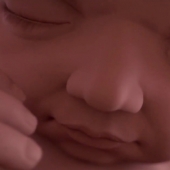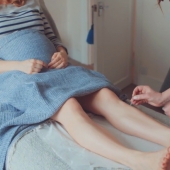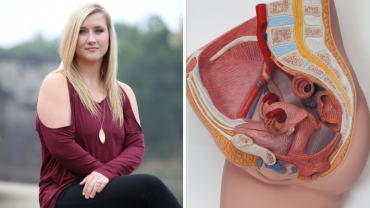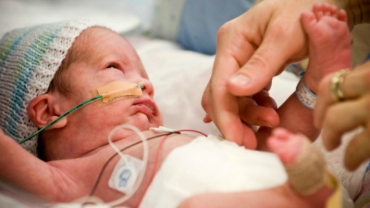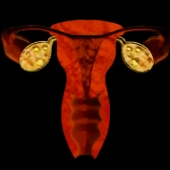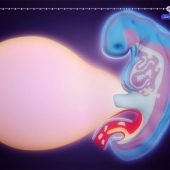What's happening when you're 19 weeks pregnant? Your little one gets a head-to-toe coating of vernix caseosa, a white cheesy-looking substance made up of lanugo (that downy hair), oil from his glands, and dead skin cells.
What's happening when you're 19 weeks pregnant? On the development docket this week: a total baby body wrap. Your little one gets a head-to-toe coating of vernix caseosa, a white cheesy-looking substance made up of lanugo (that downy hair), oil from his glands, and dead skin cells. Maybe not a recipe for your favorite spa treatment, but just the right one for your fetus.
This waterproof mixture protects your baby’s skin from his 24/7 bath – the amniotic fluid – and lubricates the birth canal. Without it, baby would look positively prune-y at birth and would have a much tougher time getting out the door. But don’t be surprised if you see vernix remnants on your newborn right after delivery, especially if he makes an early debut.
On the looks side, your baby’s monkey-like appearance of yester-week is yesterday’s news now that his legs have gone through a growth spurt and are finally in proportion to his arms. Those longer legs, coupled with the strengthening of cartilage into bone, will make your little one’s kicks and jabs more powerful.
Add to that the newly-formed neurons that are sending better commanding messages from the brain to the muscles and you’ve got a formula for stronger, meaner, and more controlled movements, allowing your acrobat to take his body for some serious test-drives – and for you to start feeling them. In the coming weeks, you’ll experience plenty of flutters, kicks, jabs, twists, stretches, and punches. And no matter when you begin feeling them or what they feel like, all your baby’s movements are bound to be moving.
Did You Know?
Stay off your back after the fourth month: Your now over-sized uterus weighs enough that when lying on your back, it can depress the vena cava, which reduces the amount of blood flow and oxygen to your baby. Not surprisingly, many women find that they become dizzy or light-headed if they lie on their backs at this point in their pregnancy.
- 126 views


